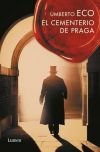
『薔薇の名前』は、ウンベルト・エーコが1980年に発表した小説。1327年、教皇ヨハネス22世時代の北イタリアのカトリック修道院を舞台に起きる怪事件の謎をフランシスコ会修道士バスカヴィルのウィリアムとベネディクト会の見習修道士メルクのアドソが解き明かしていく。 …

In the mold of his acclaimed History of Beauty, renowned cultural critic Umberto Eco’s On Ugliness is an exploration of the monstrous and the repellant in visual culture and the arts. What is the voyeuristic impulse behind our attraction to the gruesome and the horrible? Where does the magnetic appeal of the sordid …

In this exhilarating book, we accompany Umberto Eco as he explores the intricacies of fictional form and method. Using examples ranging from fairy tales and Flaubert, Poe and Mickey Spillane, Eco draws us in by means of a novelist's techniques, making us his collaborators in the creation of his text and in the …

Kant and the Platypus : Essays on Language and Cognition is a book by Umberto Eco which was published in Italian as Kant e l'ornitorinco in 1997. An English edition, translated by Alastair McEwen, appeared in 1999. The book develops some aspects of Eco's A Theory of Semiotics which came out in 1976. In the first …

Serendipities: Language and Lunacy is a 1998 collection of essays by Umberto Eco. Dealing with the history of linguistics and Early Modern concepts of a perfect language, the material in the book overlaps with La ricerca della lingua perfetta. As Eco explains it in his preface, serendipity is the positive outcome of …

Now in paperback, Umberto Eco’s groundbreaking and much-acclaimed first illustrated book has been a critical success since its first publication in 2004. What is beauty? Umberto Eco, among Italy’s finest and most important contemporary thinkers, explores the nature, the meaning, and the very history of the idea of …

The Prague Cemetery is the sixth novel by Italian author Umberto Eco. It was first published in October 2010; the English translation by Richard Dixon appeared a year later. Shortlisted for the Independent Foreign Fiction Prize in 2012, it has been described as Eco's best novel since The Name of the Rose.

 English
English Español
Español Deutsch
Deutsch


